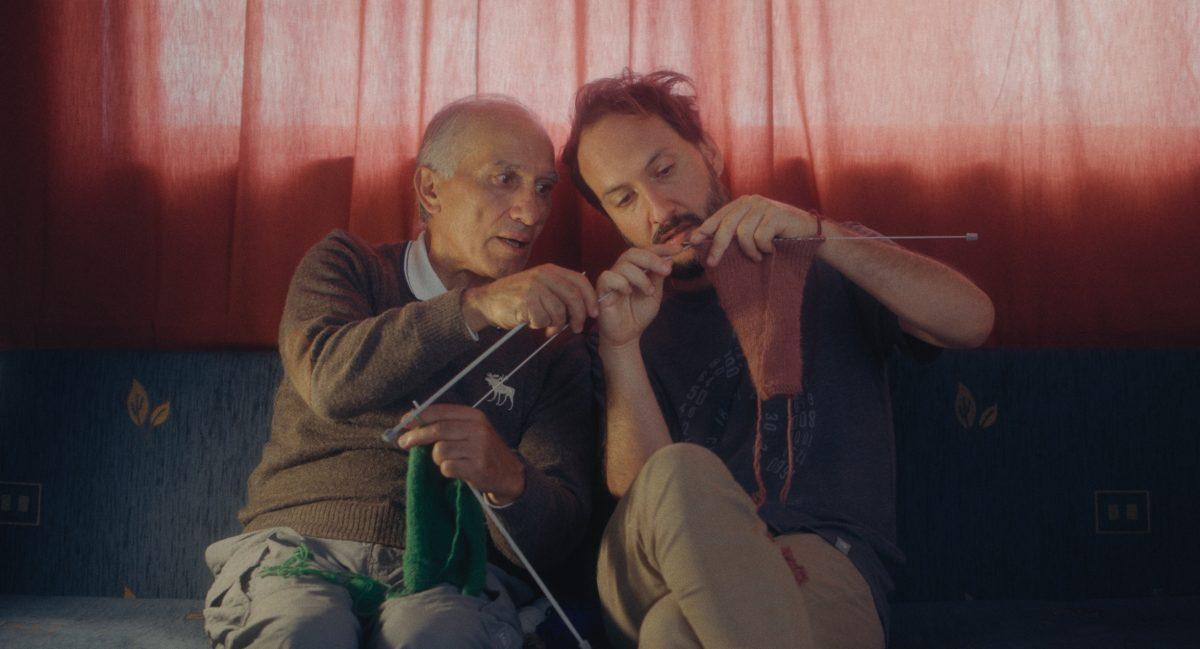
Through the lens of his grandfather’s camera, Misha Vallejo Prut explores a side of his family he’s never known
As a photography lover, I was excited to see Misha Vallejo Prut’s documentary “Light Memories” at True/False Film Fest. In the film, Prut uses photography to explore neglect, fatherhood and familial relations.
On the surface, it seemed to be a film about a man connecting with his grandfather he never knew through their shared love of photography. However, as the film goes on, it centralizes the family that is left in the grandfather’s absence. Though Prut asks his relatives, the question of who this man is and what his photographs mean is never quite answered.
The film explores the grandfather’s photography after his camera is discovered by Prut’s uncle. This is Prut’s first time hearing of his grandfather. As a photographer himself, he becomes enamored with the photographs. They are random people his grandmother, Mamita, doesn’t know. Some are leaning against a car, some are at the pool and others can’t be placed. Prut takes his grandfather’s camera and photographs his family as they are now. He focuses primarily on his grandmother and father. Prut and his grandmother explore her relationship with the man. They were together for 20 years and had four children, yet the sons never knew their father. Prut’s father, Jorge, says that his own father was a complete stranger.
Jorge seems to be a very interesting person in the film. Though its main focus is the grandfather’s absence, the theme of fatherhood is prevalent. Jorge clearly loves his son, but he was not the best father in Prut’s early years. He drank significantly, which made it hard to connect with his son. Now, both adults, Jorge has grown to be a present figure in his son’s life. The first time we meet him, he is giving a head massage to Prut. In another scene, he recounts the day he found out he was a father. The Jorge we see now is completely different than he was in Prut’s teen years. Nevertheless, it is fascinating to see the cycle of absent fathers in the film. Prut says at one point that Mamita’s father wasn’t around, neither was Jorge’s, and in moments, neither was Prut’s.
Before Prut made a film, he was a photographer. Though this is a feature film, he remains adamant that he is a photographer first and a filmmaker second. This is very clear in the film. Even when he doesn’t show his photographs, his visual art is still present. Some may consider photography a lesser art form, viewing it as just a picture capturing reality. Prut’s film shows how important it really is. Without his photographic influence, the film would not be the same. Prut understands photography, its place in the world and how to elevate the craft. Outside of the film, his photography is personal and colorful. In his series #TomandoElBus, which depicts people on a bus, it is evident how much thought he puts into each photo. He takes a simple premise of people on a bus and makes it true art.
For the audience, the film could be reminiscent of their own family and its secrets. Whether there are parts of your family that you want to keep secret or discover, “Light Memories” provides a chance to explore those uncomfortable pieces of our families we all have. During the Q&A, Prut expressed his hope that people who have unresolved issues with others can watch this film and open conversations for them. Though not everyone can make a documentary, it is always important to have conversations with your family to better understand how everyone came together.
Light Memories can be seen Saturday at 12:15 p.m. at Big Ragtag and again on Sunday, at 8 p.m. at The Globe.
You can keep up with The Maneater’s 2025 True/False Film Fest coverage here.
Edited by Alyssa Royston | [email protected]
Copy edited by Natalie Kientzy | [email protected]
Edited by Annie Goodykoontz | [email protected]